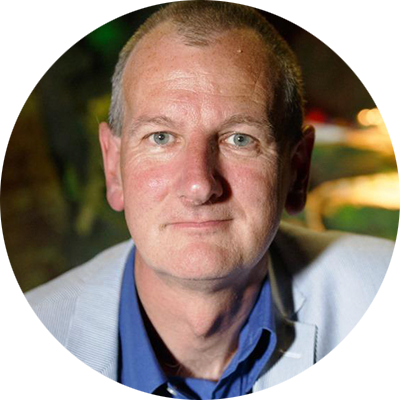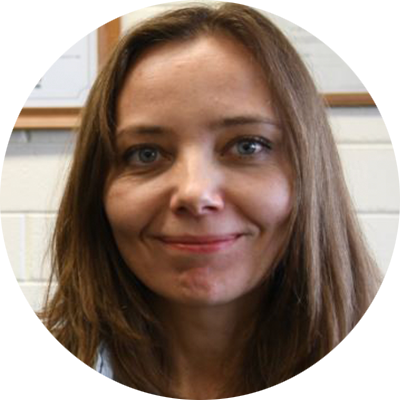Bachelor of
Science (Forensic and Analytical Science Pathway)
Entry requirements
Key information
VIEWING DOMESTIC
VIEWING INTERNATIONAL
Entry requirements
Key information
This course is not available to International students.
Continue to explore course options at Flinders University.
The first step towards a forensic science degree.
Want to study Forensics, but don't have the prerequisite knowledge requirements checked off? Don't worry! The Bachelor of Science (Forensic and Analytical Science) Pathway is a one-year program that prepares you to continue into a Bachelor of Science (Forensic and Analytical Science) or a Bachelor of Science major.
You’ll study core biology, chemistry, and forensic topics while developing laboratory and analytical skills. Designed to build confidence and capability, this pathway is ideal if you want to begin your journey into forensic and analytical science with a solid scientific foundation.
Your pathway to a career in forensic and analytical science
While the pathway itself is not a qualification, it provides the foundation for degrees that lead to careers in forensic science, research, healthcare, and analytical industries. Completing this year gives you the skills to transition into a Bachelor of Science (Forensic and Analytical Science) or another science major.
Salary
$80K
typical salary in Australia
Forensic Scientist
Forensic scientists apply biology, chemistry, and analytical methods to criminal investigations. They examine physical evidence such as DNA, trace materials, or toxicology samples, ensuring results can be used in court. Accuracy, attention to detail, and ethical integrity are critical in this role.
In Australia, forensic scientists work within police services, government laboratories, and private consultancies. Many progress into specialist roles such as forensic toxicologist or forensic biologist.
Analytical Chemist
Analytical chemists study the chemical composition of substances, applying techniques like spectroscopy and chromatography to test materials for quality, safety, or contamination. Their work supports fields such as pharmaceuticals, environmental monitoring, food production, and forensics.
In Australia, analytical chemists are in demand in industries including healthcare, mining, agriculture, and government labs. The role often leads to senior positions in laboratory management, product development, or regulatory compliance.
Salary
$85K
typical salary in Australia
Sources: Seek Australia, 2025 | Glassdoor 2025
Crime Scene Investigator
Collects and documents evidence from crime scenes, ensuring it is preserved for laboratory analysis. Works closely with police and forensic experts.
Laboratory Technician
Prepares samples, maintains equipment, and supports experiments in forensic, medical, or environmental labs. Provides a foundation for progression to senior technical roles.
Environmental Scientist
Uses analytical techniques to monitor and manage environmental issues such as pollution and contamination, often working in government or consultancy.
What will you study to start your career in forensic and analytical science?
This one-year pathway provides a strong base in chemistry, biology, and forensic practice. Successful completion allows you to transfer into a Bachelor of Science (Forensic and Analytical Science) or a science major.
- Year 1
GENERAL
In your only year in this program, you'll develop your foundations in science and forensic studies.
Year 1 - Core topics
Your first year might include the following topics. For exact topic information, visit the course Handbook.
No.1 in SA
in Sciences for learning resources, skills development, student support, teaching quality and graduate salary
The Good Universities Guide 2026 (undergraduate), public SA-founded universities only
Top 400 in the world for Life Sciences
The Times Higher Education Subject Rankings 2025
Ranked #7 in Australia in Science & Mathematics
for learner engagement
The Good Universities Guide 2025 (undergraduate)
Flinders offers a vibrant, fun, supportive uni experience you’ll remember for a lifetime.
Need support?
From cultural, health and wellbeing services, to study and financial support, enrolment advice and more, we’re here to help.
Student clubs
Flinders University Student Association (FUSA) is the heart of the Flinders Experience. FUSA is where you’ll find out about events, club memberships and extracurricular activities.
Campus facilities
Flinders’ campuses are hubs of activity, with retail and food outlets, library spaces, study and chill spaces and more.
Learn from the experts.
Our incredible teaching and professional staff are experts in their fields and well-connected to the industry.

Chair in Forensic DNA Technology
Professor Adrian Linacre
Adrian is a world-leading forensic biologist with expertise in DNA profiling, wildlife forensics and crime scene investigation. His work has helped solve complex forensic cases across the globe, and he is internationally recognised for advancing the science behind biological evidence.
At Flinders, Adrian teaches into forensic and analytical science programs and brings real-world insight to the classroom. He’s passionate about mentoring students and preparing them for careers in forensic labs, law enforcement and research. With decades of experience and a focus on practical skill development, Adrian helps students bridge the gap between science and justice.

Senior Lecturer
Mariya Goray
Mariya is a forensic scientist with international expertise in trace evidence and crime scene reconstruction. Her research focuses on how DNA and other biological traces are transferred, persisted and recovered — helping forensic experts interpret evidence more accurately in complex cases.
With hands-on experience in both laboratory and field-based investigations, Mariya’s work has contributed to the development of forensic standards used around the world. She brings a strong real-world perspective to her teaching, guiding students through the science behind crime scenes, evidence collection and courtroom interpretation. Her focus on quality, precision and critical thinking prepares students for the demands of modern forensic work.
Let’s get started on your Flinders’ experience.
We know not everyone begins uni the same way, so we offer a variety of pathways into Flinders.
Use the dropdown to tell us a bit about you.
Alternative pathways
UniTEST
If you’re in Year 12, taking the free uniTEST can help boost your chances of getting into Flinders.
Research Project B Pathway
Strong results in your Research Project B subject along with your Year 12 results can be considered for entry.
Year 12 Grades Entry
By using three of your best Year 12 grades, you can also gain a place in your course of choice.
School Recommendation Program
Your school’s recommendation about your academic performance may be considered as part of your admission.
If you started uni but didn't finish, you may be able to gain entry into Flinders with a higher education transfer.
Higher education transfer
If you’re studying at another university, you may be able to transfer to Flinders based on your Yr 12 results, current GPA or other factors.
If you've had TAFE or VET training, you may be able to continue your study with Flinders.
TAFElink
Even if you didn’t finish high school (Year 12), you may be able to study at Flinders through your TAFE/VET qualification.
Dual offer pathways
You may be able to complete a TAFE SA course and have guaranteed entry into Flinders.
Credit transfer
The TAFE/VET stud you’ve already done may be able to be used as credit towards a Flinders’ course.
No ATAR? No worries. If you've got work or life experience, there are pathways into Flinders.
Flinders Foundation Studies
The Foundation Studies Program is free and guarantees entry to a range of degrees.
Skills for Tertiary Admissions Test (STAT)
The STAT is a 2-hour multiple choice test that assesses your abilities.
Year 12 qualifications
If you completed Year 12 more than two years ago you can still use your results to apply.
Concerned about your ATAR? If it doesn't meet the course requirement, or if you don't receive one, we offer alternative pathways to admission. Contact us to discuss your options—we're here to help.
Frequently asked questions.
Over the years, many questions have been asked by students before. For the quickest answers view our frequently asked questions or browse the full list @ Ask Flinders.
It’s a one-year program that prepares you to transition into the Bachelor of Science (Forensic and Analytical Science) or another science degree.
Yes, if you achieve a GPA of 4 or higher. You’ll also receive 36 units of credit towards your new degree.
You can still apply for entry into the Bachelor of Science or another degree through the normal competitive admissions process.
You’ll build core knowledge in chemistry and biology, gain laboratory skills, and learn forensic principles such as evidence handling and analysis.
No. It’s a one-year pathway that leads into a full degree such as the Bachelor of Science (Forensic and Analytical Science).
Yes. While the program is one year full-time, you can complete it part-time over a longer period.
No, but if you’ve completed Year 12 Chemistry you may be able to replace General Chemistry with an elective.
All topics are taught on campus at Bedford Park, giving you access to labs, resources, and support throughout your studies.
- Applications are completed via SATAC
- Visit: satac.edu.au
The table below shows ATAR and Selection Rank data for students offered a place wholly or partly on the basis of ATAR commencing in Semester 1, 2025. It is limited to applicants that have recently completed secondary education (within the last two years). Data may reflect multiple courses available within a suite of courses.
Notes:
<5 – less than 5 ATAR based offers made
N/A – This course uses additional selection criteria and therefore Selection Rank is not published
| ATAR-based offers only across all offer rounds | ATAR - Excluding adjustment factors | Selection Rank - ATAR plus any adjustment factors |
|---|---|---|
| Highest rank to receive an offer | 95.20 | 99.95 |
| Median rank to receive an offer | 76.17 | 80.42 |
| Lowest rank to receive an offer | 57.75 | 61.00 |
The table below gives an indication of the likely peer cohort for new students in this course. It provides data on students who commenced study in this course in Semester 1, 2025 including those admitted through all offer rounds and international students studying in Australia. Applicant background groupings are based on educational background, not basis of admission. Data may reflect multiple courses available within a suite of courses.
Notes:
<5 – the number of students is less than 5
N/P – Not published: the number is hidden to prevent calculation of numbers in cells with less than 5 students
| Applicant background (Semester 1, 2025) | Number of students | Percentage of all students |
|---|---|---|
| Higher education study (includes a bridging or enabling course) | 44 | 37% |
| Vocational education and training (VET) study | 5 | 4% |
| Work and life experience | <5 | <5 |
| Recent secondary education - Admitted solely on the basis of ATAR (regardless of whether this includes the consideration of adjustment factors such as equity or subject bonus points) | 28 | 24% |
| Recent secondary education - Admitted where both ATAR and additional criteria were considered (e.g. portfolio, audition, extra test) | <5 | <5 |
| Recent secondary education - Admitted on the basis of other criteria only and ATAR was not a factor (e.g. special consideration pathways) | 17 | 14% |
| International Students | 18 | 15% |
| All students | 118 | 100% |
![]()
Sturt Rd, Bedford Park
South Australia 5042
South Australia | Northern Territory
Global | Online
CRICOS Provider: 00114A TEQSA Provider ID: PRV12097 TEQSA category: Australian University








